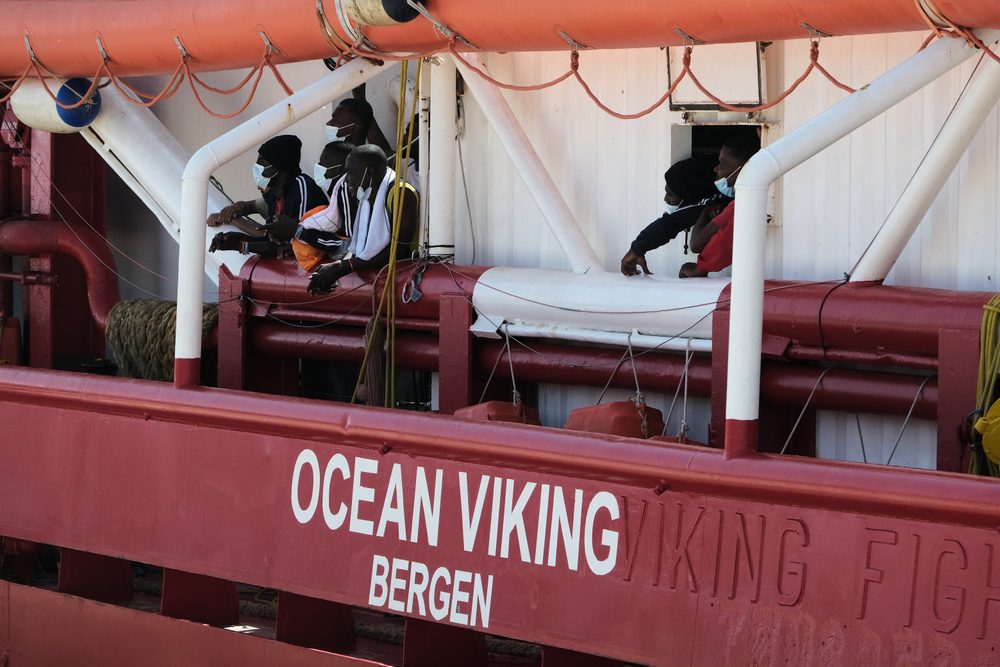
The Council of Europe (CoE), a Strasbourg-based, non-EU intergovernmental human-rights organization, has strongly urged Italy’s center-right government, led by Giorgia Meloni (FdI), to do away with a decree that seeks to regulate the activities of migrant NGO vessels operating in the Mediterranean Sea.
In a letter addressed to Italian Interior Minister Matteo Piantedosi, Dunja Mijatović, the Council of Europe commissioner for human rights, called on Meloni’s government to “consider withdrawing the decree” on migrant NGO vessels or “make sure that the text fully complies with Italy’s obligations under human rights and international law.”
The letter, originally sent on Thursday, January 26th, was revealed to the public on Thursday, February 2nd.
The CoE, in its letter, says Italy’s government decree—which it claims will prevent NGO ships from carrying out multiple rescue missions at sea—risks “depriving the deadliest migration route of the life-saving assistance provided by NGOs.”
“I am concerned that the application of some of these rules could hinder the provision of life-saving assistance by NGOs in the Central Mediterranean and, therefore, may be at variance with Italy’s obligations under human rights and international law,” Mijatović wrote.
The Italian government, for its part, has rejected the CoE’s assertion that the NGO migrant vessel decree violates international law, describing the claims Mijatović expressed in the letter as “baseless.”
“The modus operandi of the NGOs falls outside the scope foreseen by international conventions for rescue at sea, or give human traffickers an expectation of safe and immediate rescue even at a short distance from the point of departure,” Piantedosi said.
Additionally, the interior minister refuted claims made by the CoE that the decree would prevent NGO ships from making multiple rescues during missions in the Mediterranean and made it clear that the decree’s primary purpose was to prevent the systematic transport to Italy of undocumented migrants picked up off the coasts of North Africa.
“The new provisions do not prevent NGOs from carrying out more rescue interventions nor oblige them to ignore any requests for help if they have already taken other people on board,” Piantedos noted.
In January, the Italian interior ministry reported that more than 100,000 migrants—most from Egypt, Tunisia, Bangladesh, Syria, and Afghanistan—had illegally made their way to Italy by sea.
